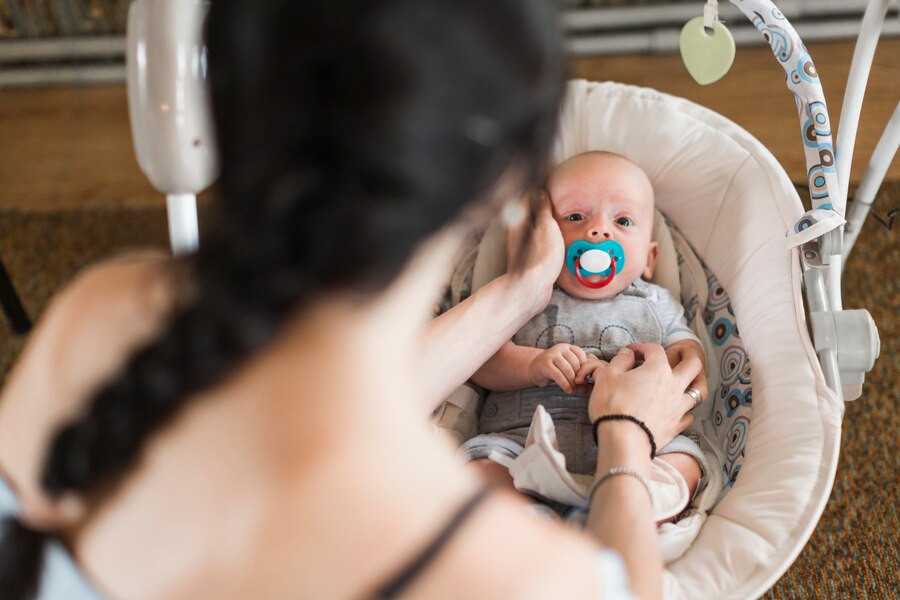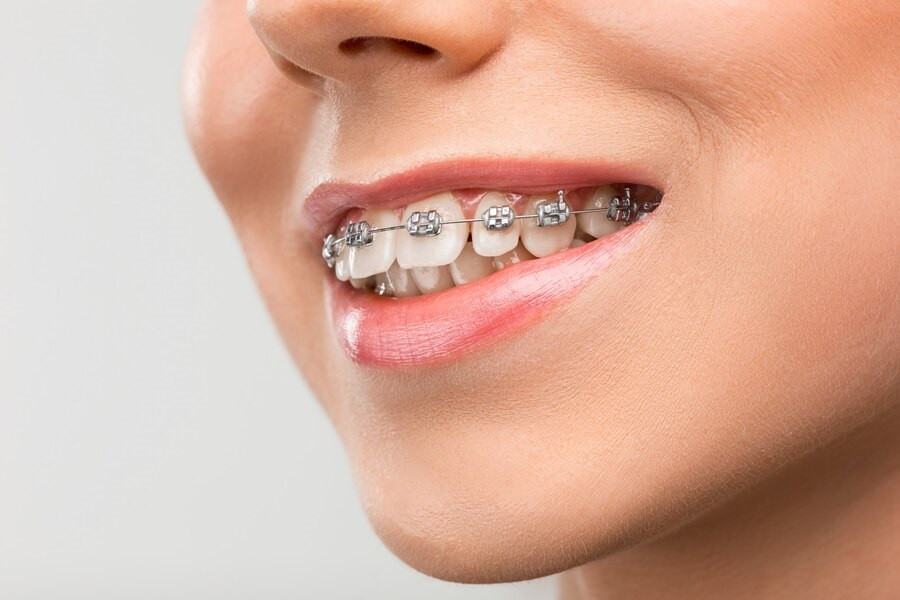Beberapa orang tua memilih memberikan empeng pada bayinya karena berbagai alasan. Empeng dapat membantu menenangkan bayi yang gelisah dengan memberikan sensasi menenangkan mirip seperti mengisap payudara atau botol. Mengisap empeng juga dapat membantu bayi tidur lebih nyenyak.
Memberikan empeng pada bayi hingga saat ini sebenarnya masih menimbulkan pro dan kontra. Selain memberikan manfaat, penggunaan empeng juga dapat berdampak negatif pada kesehatan bayi. Orang tua perlu tahu mengapa perlu mempertimbangkan kembali sebelum memberikan empeng pada bayi.
Mengapa Bayi Sebaiknya Tidak Diberi Empeng?
Meskipun empeng dapat memberikan kenyamanan sementara pada bayi, ada sejumlah alasan mengapa penggunaannya sebaiknya dihindari. Alasan tersebut di antaranya:
Mengganggu proses menyusui
Salah satu alasan utama perlu mempertimbangkan empeng karena empeng dapat mengganggu proses menyusui, terutama pada bayi baru lahir. Bayi yang terlalu sering diberi empeng mungkin menjadi bingung membedakan dot dengan puting ibunya (bingung puting). Akibatnya, bayi menjadi kurang efisien saat menyusu dan pada akhirnya asupan ASIpun berkurang.
Selain itu, penggunaan empeng dapat mengurangi frekuensi menyusu yang penting untuk memastikan suplai ASI yang cukup. Mengurangi waktu menyusu juga dapat mengurangi kesempatan ibu menjalin ikatan emosional dengan bayi melalui kontak fisik yang dekat.
Pengaruh negatif pada perkembangan gigi bayi
Alasan lain untuk tidak memberikan empeng pada bayi adalah pengaruh negatifnya terhadap perkembangan gigi bayi. Penggunaan empeng secara terus-menerus dapat menyebabkan masalah ortodontik seperti gigi tumbuh tidak sejajar atau gigitan yang tidak normal.
Ketika bayi mengisap empeng untuk waktu lama, terutama setelah gigi mulai tumbuh, tekanan yang diberikan pada gigi dan gusi dapat menyebabkan pergeseran posisi gigi. Hal ini dapat meningkatkan kebutuhan perawatan gigi (seperti pemasangan kawat gigi) di kemudian hari.
Baca Juga: Kenali Tanda Bahaya saat Bayi Muntah
Risiko infeksi telinga
Penelitian menunjukkan bahwa penggunaan empeng dapat meningkatkan risiko infeksi telinga tengah pada bayi dan anak-anak. Saat bayi mengisap empeng, tekanan yang tercipta di rongga mulut dapat mengganggu fungsi normal saluran eustachius (saluran penghubung telinga tengah dengan tenggorokan dan bagian belakang hidung).
Saat fungsi saluran ini terganggu, cairan dapat menumpuk di telinga tengah sehingga meningkatkan risiko infeksi. Infeksi telinga pada bayi tidak hanya menyakitkan, tetapi juga bisa memengaruhi pendengaran dan mengganggu perkembangan bicara dan bahasa.
Pengaruh terhadap perkembangan bicara
Bayi belajar berbicara dengan mengamati gerakan mulut orang-orang di sekitarnya. Mereka juga menirukan suara yang mereka dengar.
Apabila bayi terlalu sering menggunakan empeng, kesempatan untuk meniru suara dan menggerakkan mulut secara bebas akan berkurang. Akibatnya, perkembangan bicara akan terganggu dan bayi kurang mendapatkan latihan yang dibutuhkan.
Baca Juga: Cara Mencegah Sindrom Kepala Datar pada Bayi
Ketergantungan
Empeng yang diberikan untuk menenangkan bayi apabila digunakan terus-menerus dapat menyebabkan ketergantungan psikologis. Bayi yang terbiasa mengandalkan empeng untuk bisa tidur nyenyak akan mengalami kesulitan tidur dan tidak bisa menenangkan diri tanpa empeng. Ketergantungan ini bisa berlanjut sampai usia yang lebih tua dan proses menghentikannya tidaklah mudah.
Keputusan untuk memberikan empeng pada bayi tergantung pada pertimbangan orang tua. Apabila Anda merasa tidak yakin dan ingin bertanya lebih lanjut mengenai penggunaan empeng, Anda bisa memanfaatkan layanan konsultasi kesehatan Ai Care dengan mengunduhnya di App Store atau Play Store.
Mau tahu informasi seputar kehamilan, menyusui, kesehatan wanita dan anak-anak? Cek di sini, ya!
- dr Nadia Opmalina
Sara Novak (2022). Giving Baby a Pacifier. Available from: https://www.whattoexpect.com/baby-products/pacifiers/
Mayo Clinic (2022). Pacifiers: Are they good for your baby?. Available from: https://www.mayoclinic.org/healthy-lifestyle/infant-and-toddler-health/in-depth/pacifiers/art-20048140
Cleveland Clinic (2021). Baby Pacifier Pros and Cons. Available from: https://health.clevelandclinic.org/baby-pacifier-pros-and-cons
Shaziya Allarakha, MD. Are Pacifiers Good or Bad for Newborns?. Available from: https://www.medicinenet.com/are_pacifiers_good_or_bad/article.htm
Colleen de Bellefonds (2023). When to introduce a pacifier: Pros and cons. Available from: https://www.babycenter.com/baby/crying-colic/pacifiers-pros-cons-and-smart-ways-to-use-them_128
Dorian Smith Garcia (2021). What You Need to Know About Pacifiers and Dental Problems. Available from: https://www.healthline.com/health/pacifier-teeth
Karisa Ding. Ear infections in babies and children. Available from: https://www.babycenter.com/health/illness-and-infection/ear-infections-in-babies-and-children_83












